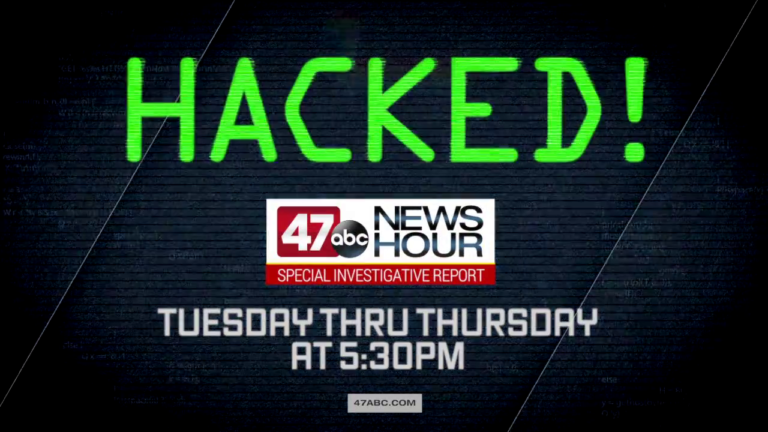HACKED! Part Two: Finding real solutions to virtual problems

Cyber attacks are growing at a rate of 64% each year. With 25 billion devices expected to be connected to the internet before the end of the decade, there are more cyber-risks now than ever. “Your name and your date of birth is all they need to steal your identity. Then they get your credit card along with it and then they can commit fraud against you.” said Delaware Department of Technology and Information Chief Security Officer, Elayne Starkey. She tells 47 ABC, whether you have a PC, Mac, or Linux machine, you can nearly stop hackers in their tracks with one simple step. “Patch, patch, patch,”
Patching refers to installing software updates from a program’s manufacturer. She also recommends having a strong unpredictable password, even on your mobile device, consider which emails you open ones that seem questionable could contain malware, and make sure you are sending encrypted files.
Starkey says if your files are not encrypted, you’ll make life easier on a hacker, “If you don’t protect it at all, it goes into what’s called clear text. Which means someone that is out there trying to intercept the traffic and see what you’re sending could see it very easily because it’s not protected in any way.”
Delaware Governor Jack Markell tells 47 ABC that a key in winning this ongoing battle is communication and information sharing. “Cyber attacks can bring down critical systems like banks or utilities a like, so there’s a very significant risk which is why we’re addressing it so seriously.” Back in October, Governor Markell signed a measure creating the Delaware Cyber Security Advisory Council. “We see a lot of cooperation because I think everybody recognizes that we’re in this new world and that nobody necessarily has all of the answers. We can all learn from each other.”
Delaware Senator Tom Carper tells us he has been playing an active role in tackling this issue in on the national scale. He co-sponsored the Cyber-security Information Sharing Act of 2015″ which aims to strengthen the department of homeland security in this fight. “What we really did was prepare the Department of Homeland security to take on a leading role this year,” said Carper.
The legislation was aimed at protecting the government from cyber attacks in the form of new technology, such as the Einstein Program. “We have new technology that’s called Einstein. There’s Einstein 1, Einstein 2, and the new one is Einstein 3.” said Carper, “Einstein 1 was to detect bad stuff that’s coming our way in the cyber world, Einstein 2 was to be able to record it, Einstein 3 is to be able to stop it.”
Einstein 3 serves as a guard on the government’s information highway and uses several classified tactics to identify and filter out the threats. Blocking any significant cyber hazards.
While Einstein won’t be protecting you directly at home, the Department of Homeland Security outlines what you should be doing to protect yourself on the web through their Stop, Think, Connect campaign website.
In Delaware, state officials are trying to grow awareness early. We’re told since 2007, 33,000 4th-graders have been educated on this topic. Two years later in 2009, Delaware was one of the first states to host cyber-challenge camps. Who’s purpose was to attract young people to a career in information security.
If you missed it, be sure to check out part one of “HACKED!“.


